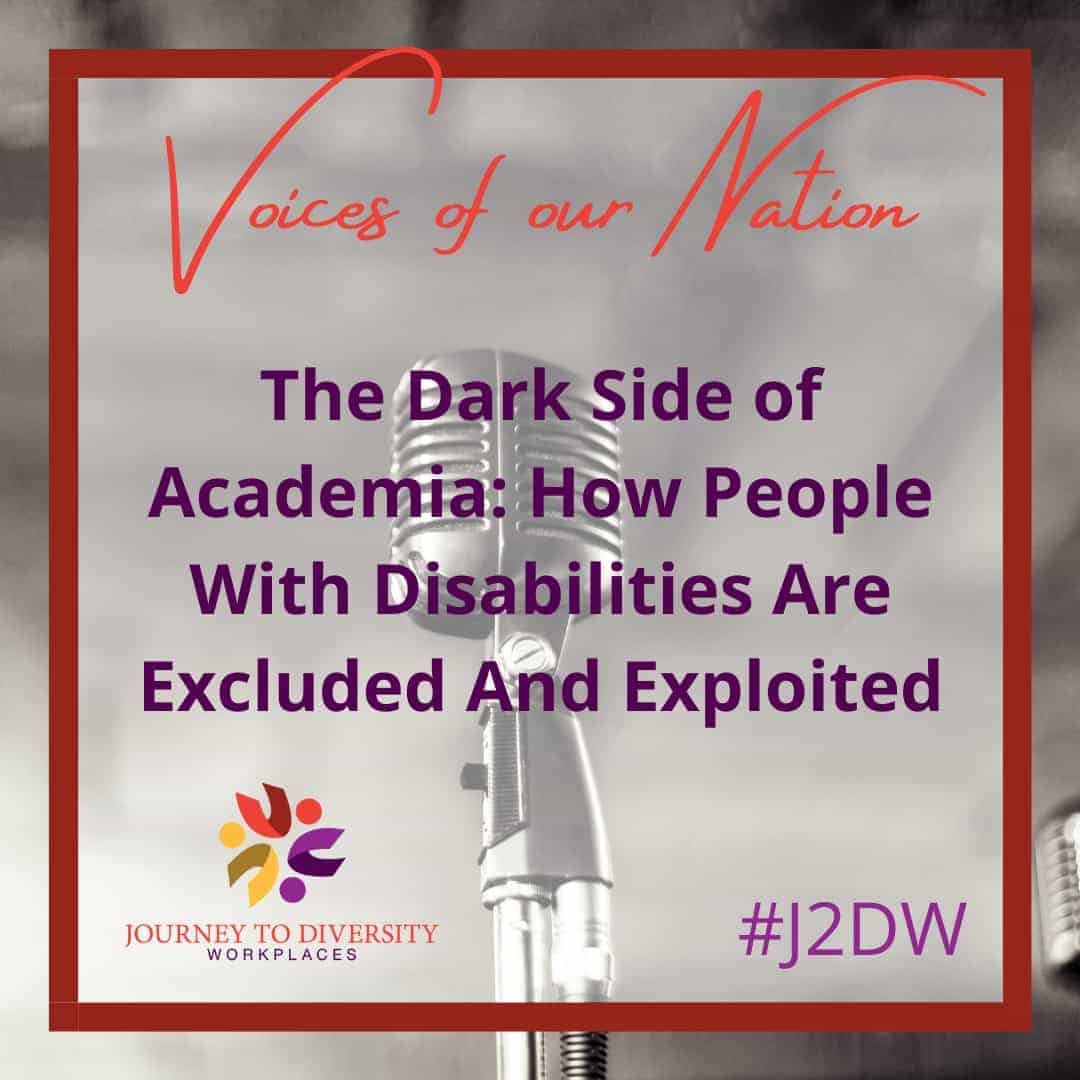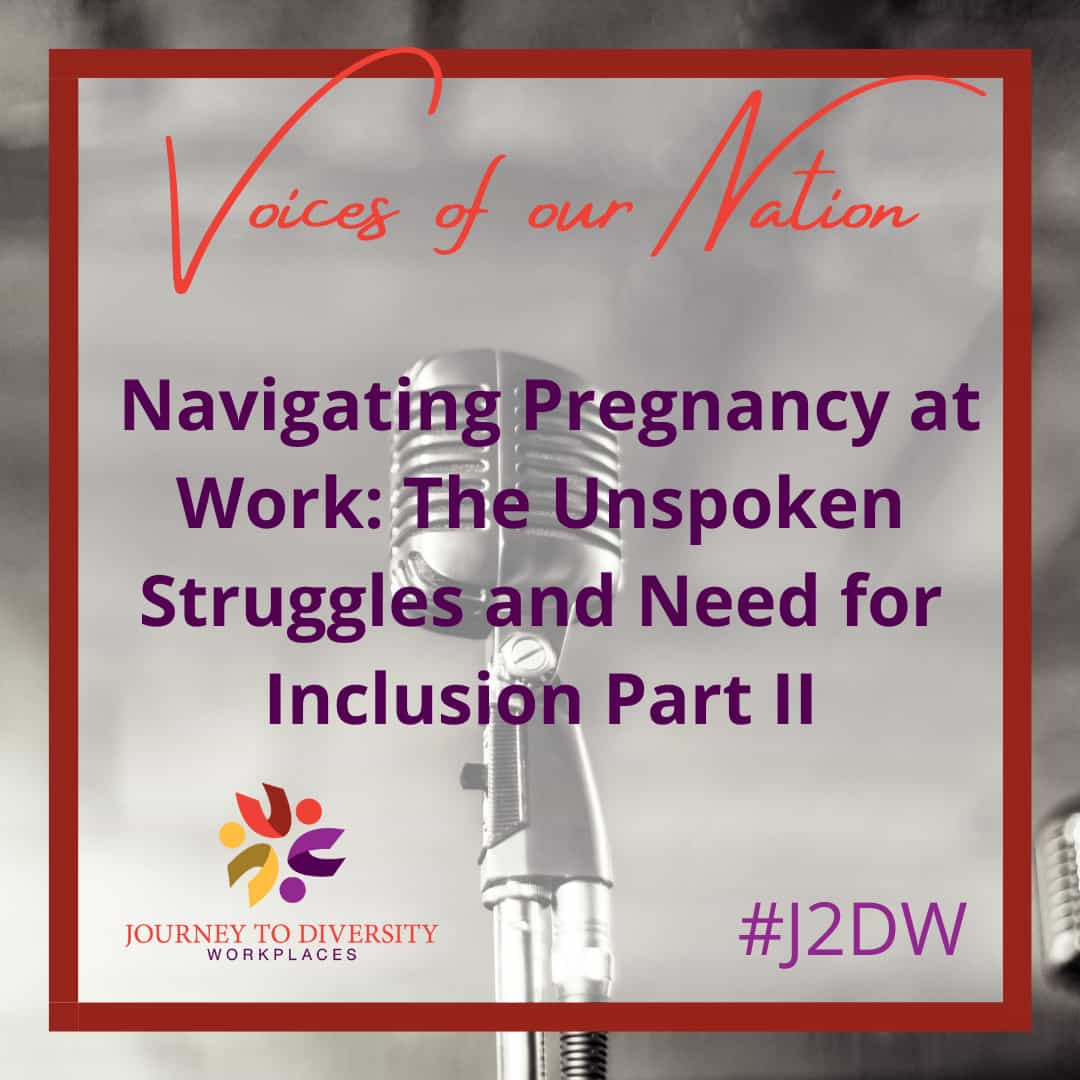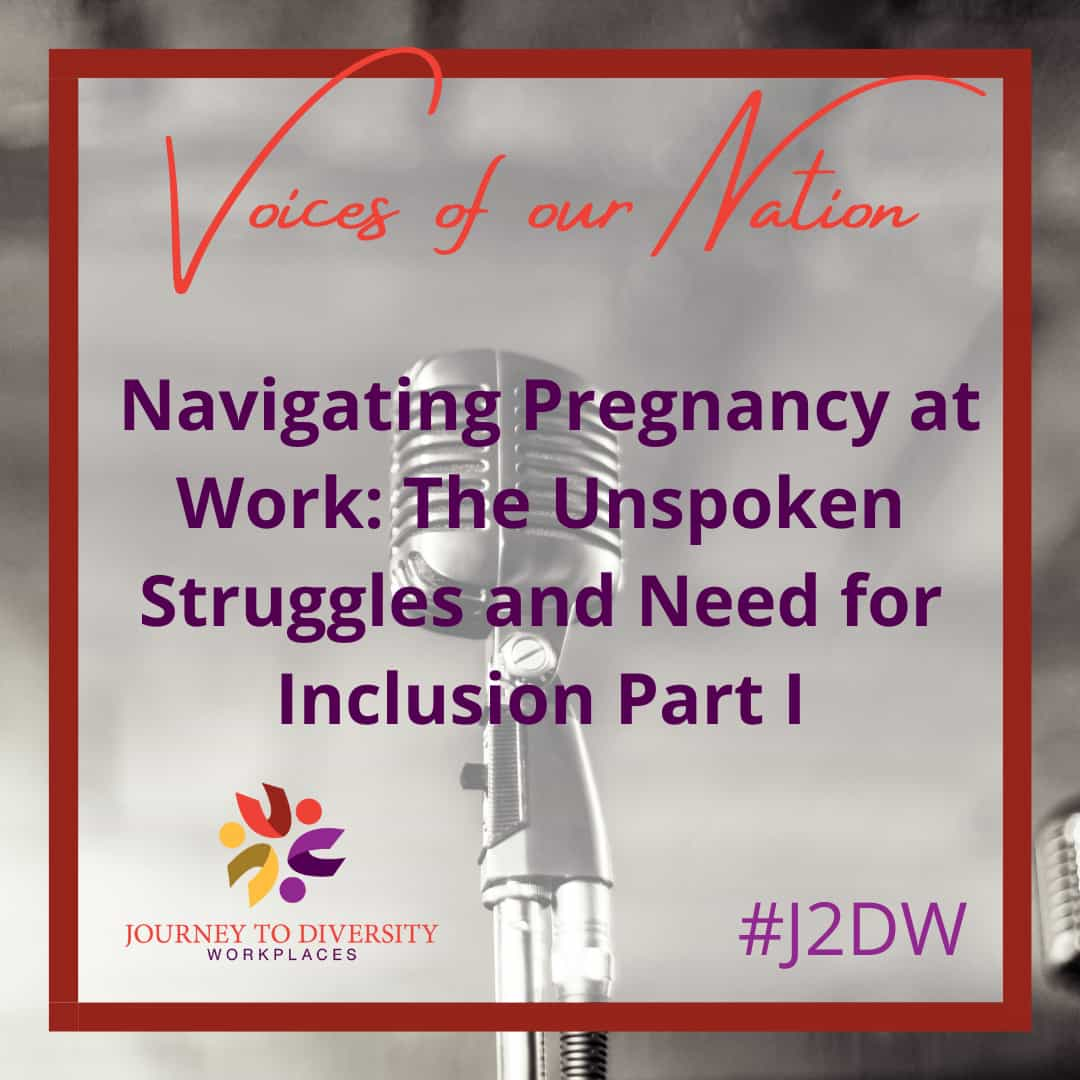Academia is already daunting on its own, but when you factor in ableism, the conversation often comes to a halt. Many individuals of authority are afraid of uncomfortable discussions, the ones that spill over into unventured topics, and, likely, the same ones they are not educated enough upon. The hesitancy to tackle subjects like ableism, Indigenous rights, antisemitism, racism, and most other ‘isms’ you can name, gives permission to the world to continue as it were and suppresses the needs, concerns, and valid criticism of those willing to take a stand.
Tag: Disabilities
Navigating Pregnancy at Work: The Unspoken Struggles and Need for Inclusion Part II
She tugs up the fifth and final flight of stairs, letting out a deep sigh and gasping for air as she hears the familiar sound of the coffee machine and mild complaints about the soon-to-be-announced project. Sweat drips down her forehead and scales her cheeks, which have grown slightly blush from the unwelcomed cardio her four-month pregnant body just endured. The elevator is getting fixed this week but she shouldn’t have to climb up five flights of stairs while pregnant until then. Yet, she’s too afraid to complain, to bring the wrong kind of attention to herself, to be perceived as the ‘pregnant woman’ rather than a project manager who happens to be pregnant. Later that day, when the new project is announced and her name is nowhere to be found, David, the boss, gives her a sympathetic shrug and a light tap on her shoulder. Just thought it would be too much for you. Maybe when your kid is older. Is this how it’s going to be now? Will she be stuck in the same position with tasks below her skill level while she watches others dive into intriguing projects and make meaningful contributions?
If you’re coming from part 1 of this blog, you’re familiar with the general topic of pregnancy in the workplace. Pregnancy discrimination is a form of sex-based prejudice, considering that those with a uterus can get pregnant, and it is unmistakably common in most workplaces. The Canadian Human Rights Act establishes that pregnancy discrimination, which includes “negative treatment, refusal to hire or promote, termination of employment, or harassment” (Canadian Human Rights Commission), is strictly prohibited. This act helps protect pregnant employees from mistreatment and prejudice in the workplace and encourages employers to promote a more accommodating and accessible working environment. However, it is no surprise that the theory doesn’t always align with reality, and these acts of discrimination continue to hinder the possibility of upward mobility while dissipating any excitement or motivation the employee once carried about their job.
Upward mobility becomes a fatality for many pregnant individuals. Pregnancy discrimination is not always intentional as it can often root in an unconscious bias regarding women and gender roles in the workplace or come from a place of genuine concern for the individual’s well-being, but nonetheless, the damage is all the same. Social perception of the employees in question shifts from the skill and value they provide to the work setting, and to the new boundaries and roles their pregnancy requires. To combat this misstep, consider reframing your thoughts by recognizing coworkers for their dedication and skill first and foremost, as it is a sign of respect necessary for a healthy workplace. This introduces the dire need for reevaluating the language used around pregnancy and childbirth in association with employees. Determine– is the support we are offering as employees and employers coming from a place of compassion or of prejudice? The primary distinction is respect.
Employment Insurance (EI) maternity leave in Ontario is 15 weeks long (Government of Canada, 2023). These 15 weeks pass by quickly and create an unintentional and unconscious barrier between the returning employee and their colleagues. While the mother is battling separation anxiety from the newborn, physical pains and discomfort, and the mental and emotional effects of childbirth and caring for a newborn, she soon realizes that the work she relied on for fulfillment and distraction is no longer gratifying. Due to unconscious bias, employers undermine the new parent’s ability to maintain job performance and, thus, cause a lull or stagnance in their professional development, which inhibits their ability to attain more authoritative positions. New parents may appreciate the decreased expectations at first because it gives them time and space to ease into being a working parent; however, the workplace is often unable to break its fixation on the woman’s role as anything other than a mother– an issue male parents are rarely subject toward. Viewing women as multifaceted beings by practicing compassion and showing respect is crucial for employers and employees alike. This approach forms an avenue to enforce structural and behavioural changes that lead to concrete, large-scale improvements in the lives of pregnant women and new parents.
Those of us that have never had to consider these issues are in jeopardy of overlooking the experiences of an entire group of people. By outlining these experiences, this article hopes to remind CEOs, employers, and employees to reconsider their internal biases and restructure their approach toward pregnancy in the workplace.
References
Canadian Human Rights Commission. (n.d.). Pregnancy & human rights in the Workplace. https://www.chrc-ccdp.gc.ca/sites/default/files/publication-pdfs/pregnancy_policy_0.pdf
Government of Canada. (2023, February 21). Employment Insurance maternity and parental benefits. https://www.canada.ca/en/employment-social-development/programs/ei/ei-list/reports/maternity-parental.html#:~:text=How%20long%20will%20I%20receive,of%20the%20two%20is%20later
This article was written by summer student Ilesha Prabhudesai. This article was funded by the Government of Canada.
Navigating Pregnancy at Work: The Unspoken Struggles and Need for Inclusion Part I
The exhaustion that comes from carrying a child while managing teams and responding to passive-aggressive emails ruminates in your body way past the delivery date. It circles the back corners of your mind and infuses your blood with inexplicable disdain and fatigue, but alas, you must return in a few weeks to ensure financial security for your newborn. The topics of work conditions, accessibility and accommodations, and, most importantly, the mental, emotional, and physical toll of pregnancy on working women, require a greater spotlight and a more inclusive discussion. When it comes to intersectionalities such as women of colour (WOC) and gender-diverse individuals, this conversation comes to an abrupt stop or fizzles out in unproductive chatter. Hence, an introduction and a brief discussion is warranted.
One of the first hurdles after finding out you are pregnant circles the idea of “breaking the news” in the workplace. Sharing such a big event of your life with your employer, and, eventually, your colleagues is daunting, quite exposing, and extremely nerve-wracking. On one end, pregnant women must consider and fret over their social perception in a professional environment as well as its impact on their position in the workplace. On the other hand, employers must scope out their accommodation/accessibility needs, the potential risks with project timelines, and hash out the logistics. Both parties are subject to stress and pressure to “do it right” without leaving an indelible mark on work performance– which is simply not possible.
What is the most appropriate language to use while telling your coworkers you are expecting? Should I just let the size of my growing stomach do the talking? (Hai, 2018) When English isn’t your first language or if you are an immigrant, this conversation gets increasingly difficult as Canadian social norms are foreign to you. Following the barrier of breaking the news, a million anxieties cloud your mind. “Will this make me inferior to my coworkers?” is often the most common concern pregnant individuals face at this stage. This anxiety is only heightened if they are a POC, as, this intersectionality often compels individuals to “overachieve” to earn respect and upward mobility in their careers.
Once the news is out, pregnant individuals must deal with the mental, emotional, and physical effects of pregnancy in the workplace. For instance, standing for too long can result in dizziness, hypertension, placental abruption, and back pain, and may even lead to pre-term delivery (Government of Canada, 2023). If physical labour is a part of the job, employers must take the necessary precautions regarding noise levels, chemical handling, pushing/pulling/lifting, and heat exposure (Government of Canada, 2023). An ideal workplace should provide clear, quick access to the bathroom, access to toiletries, an accessible route to the workplace (including access to an elevator rather than taking the stairs), permission to take regular, short walks to prevent foot swelling, and easy access to an emergency plan if needed, to name a few. Employers are encouraged to take these factors into consideration to accommodate this new change so employees can best focus on their performance in the workplace and ensure productivity.
In understanding some of these basics of navigating the workplace as a pregnant individual, I encourage readers to be more introspective about their own experiences with this topic. In what ways have you supported a pregnant individual in your workplace? How have your actions positively or negatively impacted them? In the next article, I aim to dive into the nuanced topic of pregnancy discrimination in the workplace, maternity leave, and work-life balance, where I hope to drive a deeper discussion surrounding pregnancy and intersectionality.
References
Government of Canada, C. C. for O. H. and S. (2023, April 4). Reproductive health – pregnancy in the workplace. Canadian Centre for Occupational Health and Safety. https://www.ccohs.ca/oshanswers/psychosocial/wh/reproductive-health-pregnancy-in-the-workplace.html#:~:text=Prolonged%20standing%E2%80%93%20may%20lead%20to,32%20weeks%20should%20be%20avoided
Hai, S. (2018, July 20). How my pregnancy changed my experience at work. Thrive Global. https://community.thriveglobal.com/how-my-pregnancy-changed-my-experience-at-work/
This article was written by summer student Ilesha Prabhudesai. This article was funded by the Government oF Canada.



